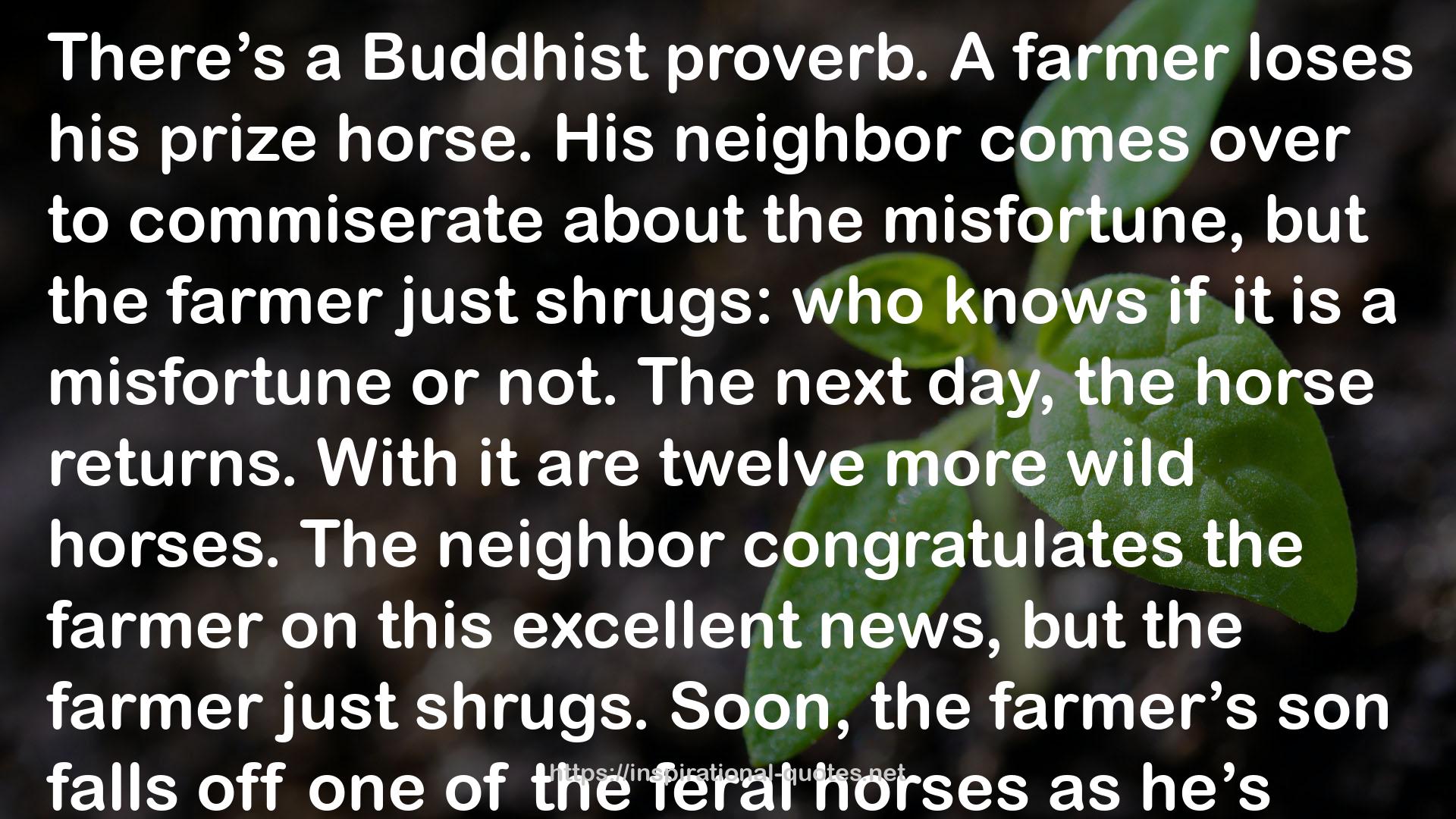" There’s a Buddhist proverb. A farmer loses his prize horse. His neighbor comes over to commiserate about the misfortune, but the farmer just shrugs: who knows if it is a misfortune or not. The next day, the horse returns. With it are twelve more wild horses. The neighbor congratulates the farmer on this excellent news, but the farmer just shrugs. Soon, the farmer’s son falls off one of the feral horses as he’s training it. He breaks a leg. The neighbor expresses his condolences. The farmer just shrugs. Who knows. The country declares war and the army comes to the village, to conscript all able-bodied young men. The farmer’s son is passed over because of his leg. How wonderful, the neighbor says. And again the farmer shrugs. Perhaps. You can’t control what will happen, so it makes no sense to try to guess at it. Chance is just chance: it is neither good nor bad nor personal. Without us to supply meaning, it’s simple noise. The most we can do is learn to control what we can—our thinking, our decision processes, our reactions. "
― Maria Konnikova , The Biggest Bluff: How I Learned to Pay Attention, Master Myself, and Win
